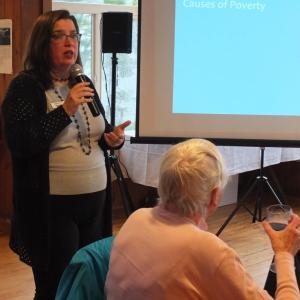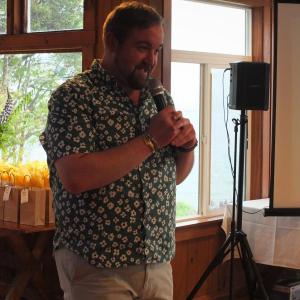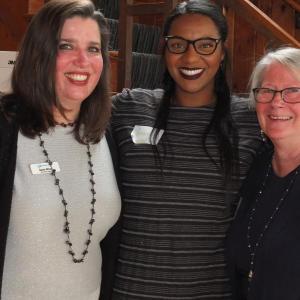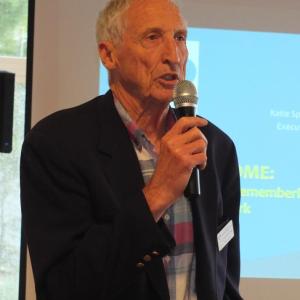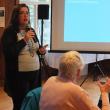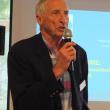BRCRC welcomes home returning volunteers, board members
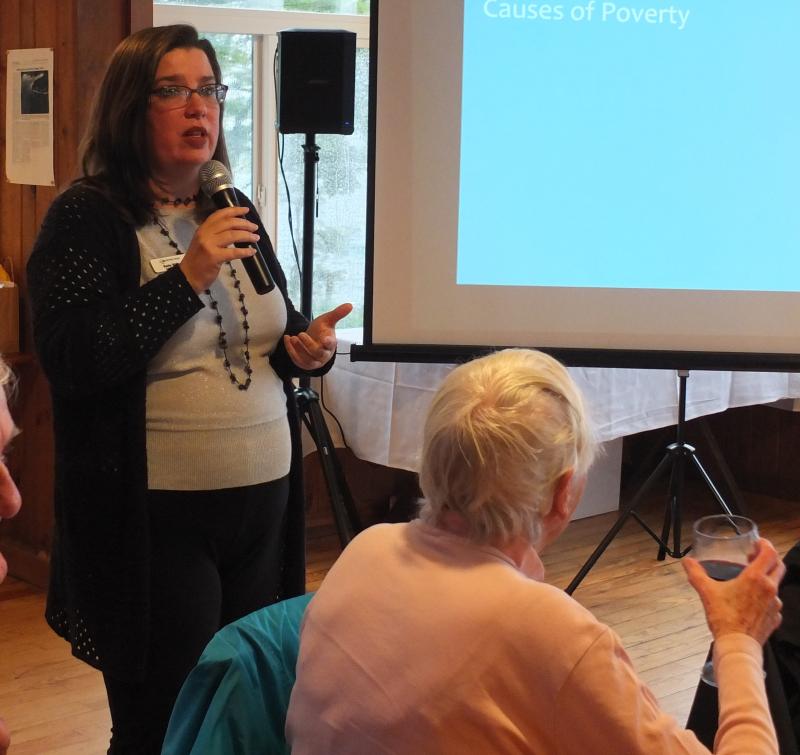 Executive Director Katie Spencer White welcomes returning Boothbay Region Community Resource Council volunteers and board members on June 13 by reminding them about the challenges facing low income families on the peninsula. BILLPEARSON/Boothbay Register
Executive Director Katie Spencer White welcomes returning Boothbay Region Community Resource Council volunteers and board members on June 13 by reminding them about the challenges facing low income families on the peninsula. BILLPEARSON/Boothbay Register
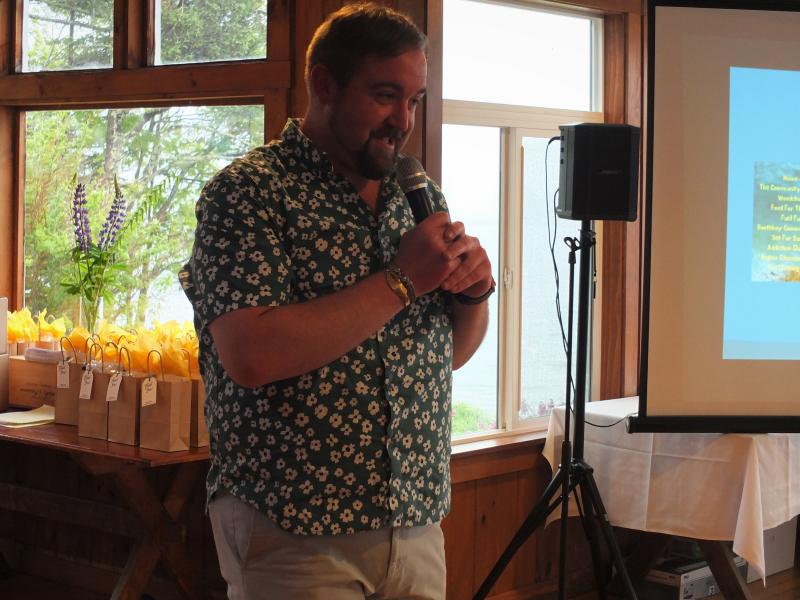 At Boothbay Region Community Resources Council's Welcome Home celebration held for returning volunteers and board members at Linekin Bay Resort on June 13, BRCRC vice chairman Michael Maxim thanks those who provided support for local families in need. BILL PEARSON/Boothbay Register
At Boothbay Region Community Resources Council's Welcome Home celebration held for returning volunteers and board members at Linekin Bay Resort on June 13, BRCRC vice chairman Michael Maxim thanks those who provided support for local families in need. BILL PEARSON/Boothbay Register
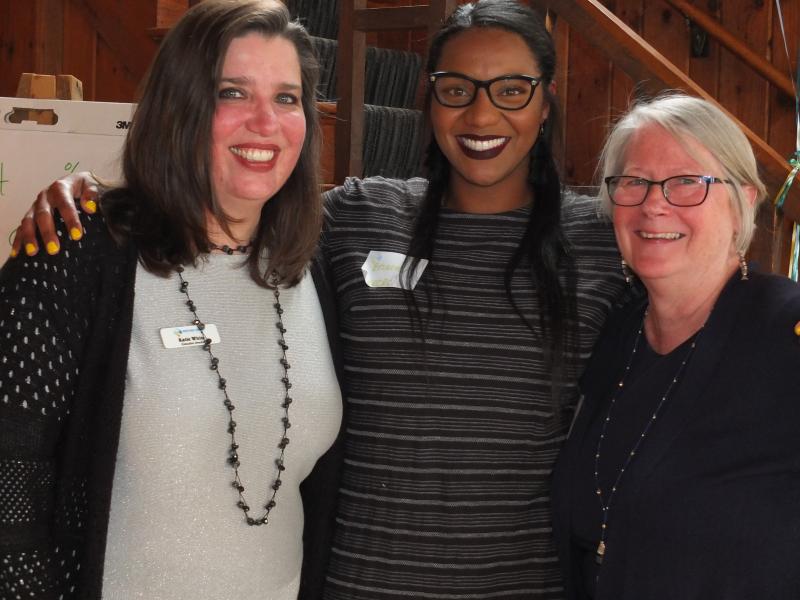 Boothbay Region Community Resource Council staffers: from left, Katie Spencer White, Brianna Davis and Kathleen Arabasz, at the June 13 Welcome Home reception for returning volunteers and board members. BILL PEARSON/Boothbay Register
Boothbay Region Community Resource Council staffers: from left, Katie Spencer White, Brianna Davis and Kathleen Arabasz, at the June 13 Welcome Home reception for returning volunteers and board members. BILL PEARSON/Boothbay Register
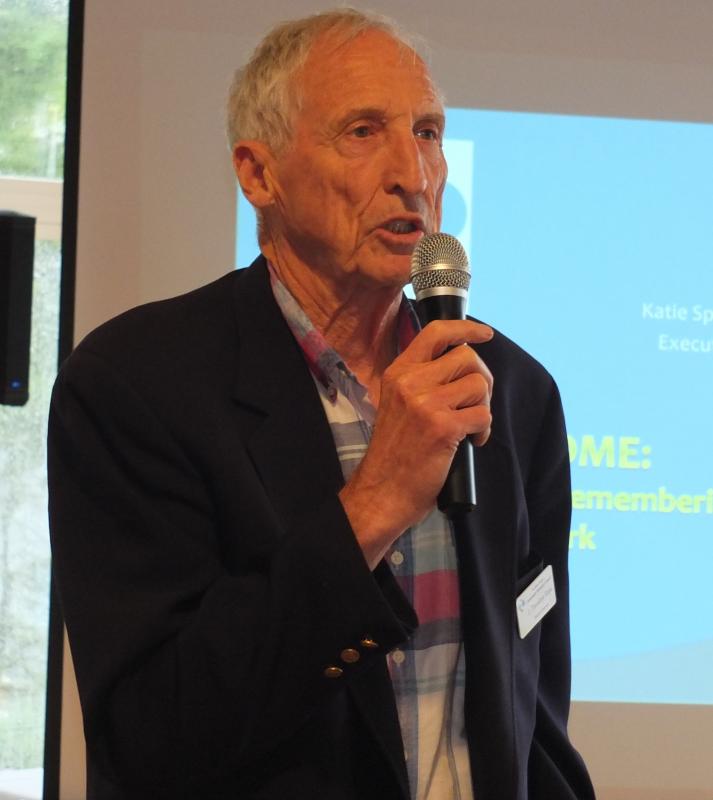 During a June 13 event in Boothbay Harbor, Chairman Ted Repa thanks volunteers and board members for their contribution to the Boothbay Region Community Resource Council. BILL PEARSON/Boothbay Register
During a June 13 event in Boothbay Harbor, Chairman Ted Repa thanks volunteers and board members for their contribution to the Boothbay Region Community Resource Council. BILL PEARSON/Boothbay Register
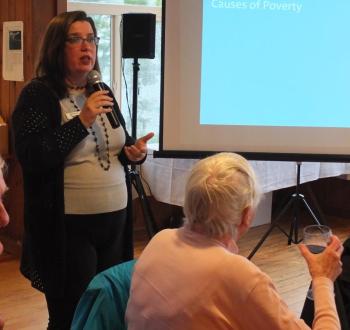 Executive Director Katie Spencer White welcomes returning Boothbay Region Community Resource Council volunteers and board members on June 13 by reminding them about the challenges facing low income families on the peninsula. BILLPEARSON/Boothbay Register
Executive Director Katie Spencer White welcomes returning Boothbay Region Community Resource Council volunteers and board members on June 13 by reminding them about the challenges facing low income families on the peninsula. BILLPEARSON/Boothbay Register
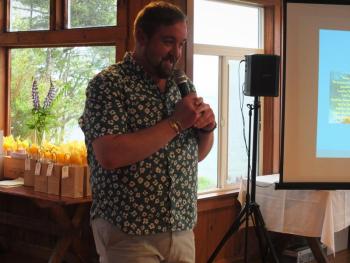 At Boothbay Region Community Resources Council's Welcome Home celebration held for returning volunteers and board members at Linekin Bay Resort on June 13, BRCRC vice chairman Michael Maxim thanks those who provided support for local families in need. BILL PEARSON/Boothbay Register
At Boothbay Region Community Resources Council's Welcome Home celebration held for returning volunteers and board members at Linekin Bay Resort on June 13, BRCRC vice chairman Michael Maxim thanks those who provided support for local families in need. BILL PEARSON/Boothbay Register
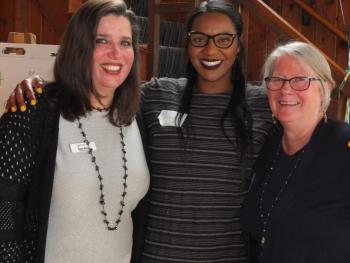 Boothbay Region Community Resource Council staffers: from left, Katie Spencer White, Brianna Davis and Kathleen Arabasz, at the June 13 Welcome Home reception for returning volunteers and board members. BILL PEARSON/Boothbay Register
Boothbay Region Community Resource Council staffers: from left, Katie Spencer White, Brianna Davis and Kathleen Arabasz, at the June 13 Welcome Home reception for returning volunteers and board members. BILL PEARSON/Boothbay Register
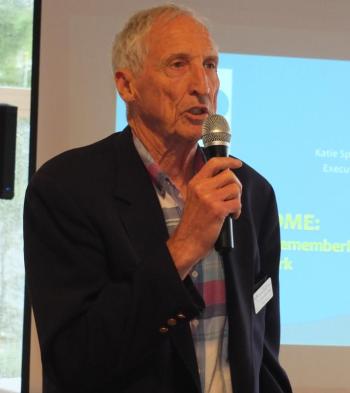 During a June 13 event in Boothbay Harbor, Chairman Ted Repa thanks volunteers and board members for their contribution to the Boothbay Region Community Resource Council. BILL PEARSON/Boothbay Register
During a June 13 event in Boothbay Harbor, Chairman Ted Repa thanks volunteers and board members for their contribution to the Boothbay Region Community Resource Council. BILL PEARSON/Boothbay Register
In 2001, the Boothbay Region Community Resource Council began providing a helping hand to those in financial need. In those years, the council has used a variety of staff, volunteers, donors and board members to help community members battling poverty. On June 13, the BRCRC welcomed back those who left for the winter and recently returned to enjoy the region’s warm weather and, once again, help their neighbors.
About 50 people attended the Welcome Home ceremony at Linekin Bay Resort in Boothbay Harbor. Executive Director Katie Spencer White served as the evening’s main speaker. She reminded attendees about the council’s impact. BRCRC is an umbrella group for eight local programs for low-income residents. From feeding schoolchildren on the weekend with the Food for Thought program to providing a second chance to those struggling with substance abuse through an addiction outreach program, the council is equipped to deal with daily challenges facing the region’s most economically vulnerable.
The council receives a variety of financial donations and grants to run programming. White reported for each dollar raised by the council, it provided $8 in local financial services. Besides direct financial assistance, such as connecting residents with the Woodchucks for a load of firewood or fuel fund banner, the council has found other ways to maximize benefits to recipients. “We connect these families to LIHEAP (Low Income Heating Energy Program), too. In the past, they came for wood or fuel, but by creating a relationship with LIHEAP we’re able to connect them with an additional 1,200 gallons and three cords of wood. It works out to a better deal,” White said.
Since January 2018, White reported the community navigator provided over $125,000 in additional resources for low-income community members. Food for Thought has doubled in size in recent years. White attributed the program’s growth to making food deliveries more accessible. “Our outreach resulted in finding more children and partnering with more groups. We acquired Boothbay Fish which provides transportation and resulted in making sure there are more Food for Thought rides to the food pantry which maximized available resources,” she said.
One of the newer council programs is addiction outreach. The council teams with the Boothbay Harbor Police Department to connect those battling drug addiction with services geared toward recovery. White described the program as treating the malady as a “human, not a drug problem.” The council uses Narcan to revive overdose victims and provides counseling for breaking the cycle of addiction. “It’s a team effort in connecting people with behavioral services. Unless you treat the whole person then you can’t treat the addiction. It’s a human problem which needs addressing holistically,” White said.
Housing is another challenge facing local residents regardless of economic status. Lincoln County has no homeless or emergency shelters. So when an economic crisis strikes, the council’s top goal is keeping families in their current housing. “You’ve heard about the influx of asylum seekers in Portland seeking housing. Well, we have our challenges, too. We don’t have a lot so when someone faces a challenge in their housing, we try to keep them where they are,” she said.
White shared various economic models used by federal agencies which measured poverty. One defined poverty as a family of four earning $27,500. A European model based American poverty at $31,000. And another, by a conservative think tank, used a man-on-the-street interview based on a poll on what Americans thought a family of four could live on. The poll gauged public opinion as $34,000 defining the American family poverty level. “These surveys just don’t capture the true need. We know people who are in need, and they are not being counted,” White said.
For those families, White paraphrased a quote by former U.S. Supreme Court Justice Potter Stewart about identifying poverty without putting it into specific words. “I know it when I see it,” she said.
Event Date
Address
United States

